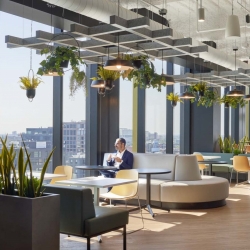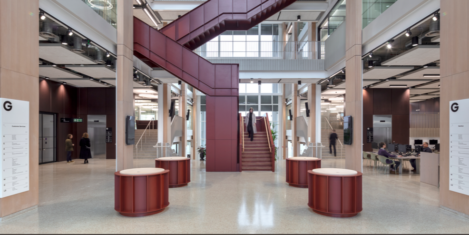May 30, 2023
Surge in employee turnover suggest that the ‘Great Resignation’ is still with us
 Over the past year, 55 percent of working adults have either started a new job or are looking for one, according to a report [registration] published by insurance firm YuLife. The poll suggests that a further 35 percent of working adults say it is likely they will consider changing jobs within the next year. The report claims that these findings suggest that the so-called Great Resignation may be far from over. The report also claims that high levels of stress characterize the modern workplace, and businesses which proactively address employees’ concerns around stress and invest in their wellbeing benefit from reduced churn and turnover. (more…)
Over the past year, 55 percent of working adults have either started a new job or are looking for one, according to a report [registration] published by insurance firm YuLife. The poll suggests that a further 35 percent of working adults say it is likely they will consider changing jobs within the next year. The report claims that these findings suggest that the so-called Great Resignation may be far from over. The report also claims that high levels of stress characterize the modern workplace, and businesses which proactively address employees’ concerns around stress and invest in their wellbeing benefit from reduced churn and turnover. (more…)













 Following last week’s announcement of the annual BCO Awards winners for London, the British Council for Offices has announced the winners of its annual Awards for the North of England. In fact all but one of the winners are located in Greater Manchester and the one that isn’t lies within twenty miles of it. The organisers suggest that the theme of sustainable office design runs through the submissions of the winning entries.
Following last week’s announcement of the annual BCO Awards winners for London, the British Council for Offices has announced the winners of its annual Awards for the North of England. In fact all but one of the winners are located in Greater Manchester and the one that isn’t lies within twenty miles of it. The organisers suggest that the theme of sustainable office design runs through the submissions of the winning entries. 




 In 1989, Stephen Fry and Hugh Laurie, performed a TV sketch called Information. You can watch it below. It featured Stephen Fry sitting at a desk with a placard displaying the word “INFORMATION”. He asks, “Can I help you?” to which Hugh Laurie replies, “Oh, I would like some information, please”. Though, in the discussion, Hugh Laurie expects to get information without asking any questions, Stephen Fry explains that he has lots of information, such as “the average weight of a rabbit”. In response comes the statement, “Well, I didn’t know that, that there was an average weight of a rabbit!”
In 1989, Stephen Fry and Hugh Laurie, performed a TV sketch called Information. You can watch it below. It featured Stephen Fry sitting at a desk with a placard displaying the word “INFORMATION”. He asks, “Can I help you?” to which Hugh Laurie replies, “Oh, I would like some information, please”. Though, in the discussion, Hugh Laurie expects to get information without asking any questions, Stephen Fry explains that he has lots of information, such as “the average weight of a rabbit”. In response comes the statement, “Well, I didn’t know that, that there was an average weight of a rabbit!” 






 As part of an ongoing £500m regeneration project for Sunderland City Centre, a new City Hall has been developed on the former Vaux brewery site on the River Wear. The brief from Sunderland City Council was to create a space that could incorporate various council departments while creating somewhere that provides opportunities to engage with the local community. This includes a multifunctional council chamber, customer service centre, and café, all of which are on the ground floor. Since its completion, the City Hall won a BCO Award and was also named ‘Best of the Best’ National & Regional winner – both in the ‘Corporate Workplace’ category.
As part of an ongoing £500m regeneration project for Sunderland City Centre, a new City Hall has been developed on the former Vaux brewery site on the River Wear. The brief from Sunderland City Council was to create a space that could incorporate various council departments while creating somewhere that provides opportunities to engage with the local community. This includes a multifunctional council chamber, customer service centre, and café, all of which are on the ground floor. Since its completion, the City Hall won a BCO Award and was also named ‘Best of the Best’ National & Regional winner – both in the ‘Corporate Workplace’ category. 








May 10, 2023
How to eliminate tech-shaming in the workplace
by Aaron Taylor • Comment, Technology, Workplace